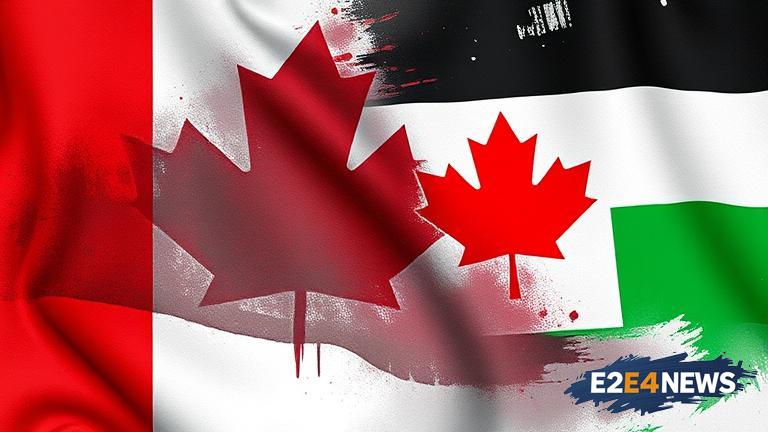Canada is on the cusp of a major foreign policy shift, as it prepares to recognize the State of Palestine in September. This announcement, made by Mark Carney, underscores the country’s commitment to a two-state solution in the Israeli-Palestinian conflict. The move is expected to have far-reaching implications, both domestically and internationally. Canada’s decision to recognize Palestine as a sovereign state is seen as a significant step towards a more balanced approach to the conflict. The announcement has been met with a mix of reactions, with some hailing it as a major breakthrough, while others have expressed concerns about the potential consequences. The Canadian government has long been a supporter of a two-state solution, and this move is seen as a concrete step towards achieving that goal. The recognition of Palestine is expected to be formalized in September, although the exact details of the announcement are still unclear. The decision is likely to be welcomed by the Palestinian Authority, which has long sought international recognition of its statehood. The move is also expected to be closely watched by the international community, particularly in the Middle East, where the Israeli-Palestinian conflict remains a major point of contention. Canada’s recognition of Palestine is seen as a significant shift in its foreign policy, one that reflects the country’s commitment to human rights and international law. The announcement has been praised by many in the international community, who see it as a major step towards a more just and peaceful resolution to the conflict. However, the move is also likely to be met with opposition from some quarters, particularly in Israel, where the government has long opposed the recognition of Palestine as a sovereign state. Despite these challenges, Canada’s decision to recognize Palestine is seen as a major breakthrough, one that could help to pave the way for a more lasting peace in the region. The recognition of Palestine is also expected to have significant implications for Canada’s relations with other countries in the region, particularly Israel. The Canadian government has long sought to maintain good relations with both Israel and the Palestinian Authority, and this move is seen as a way of balancing those competing interests. The decision to recognize Palestine is also likely to be influenced by Canada’s commitment to human rights and international law. The country has long been a strong supporter of the United Nations and its various agencies, and this move is seen as a way of upholding those principles. In recent years, Canada has faced criticism for its handling of the Israeli-Palestinian conflict, with some accusing the government of being too supportive of Israel. However, this move is seen as a way of addressing those concerns and demonstrating Canada’s commitment to a more balanced approach. The recognition of Palestine is also expected to have significant implications for the Canadian economy, particularly in terms of trade and investment. The country has long been a major trading partner with Israel, and this move is likely to be closely watched by businesses and investors. Despite these challenges, Canada’s decision to recognize Palestine is seen as a major step forward, one that could help to promote peace and stability in the region. The move is also likely to be welcomed by many Canadians, who have long supported the recognition of Palestine as a sovereign state. In conclusion, Canada’s decision to recognize the State of Palestine in September is a significant move, one that reflects the country’s commitment to human rights, international law, and a two-state solution. The move is expected to have far-reaching implications, both domestically and internationally, and is likely to be closely watched by the international community.
